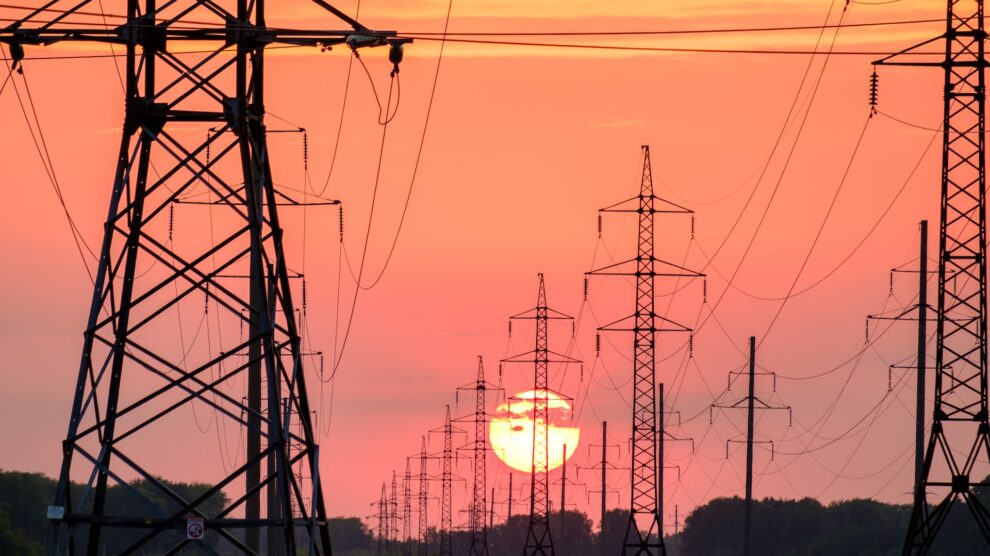The arrival of warm summer days means that, for many households, it is finally time to switch on the air conditioner. In a word: happiness. In the heat of the summer, it might be frustrating to turn on the air conditioner and find that every other resident in your building or neighborhood has the same idea. So, you agree that this makes perfect sense?
In the worst-case scenario, a rolling blackout is possible if millions of air conditioners all switch on at once, putting an undue pressure on the local power supply.
When in use, air conditioners use a massive amount of electricity (500 to 2,400 watts per room unit). And because of their on/off nature, they can cause significant and unexpected increases in the use for power.
Summer Heat Waves and Storms Across North America
More and more people are experiencing extremely hot room temperatures, while less and fewer people are experiencing extremely cold temperatures across the world. Daily record hot temperatures have happened twice as often as record low temperatures over the continental United States over the past decade, up from a near 1:1 ratio in the 1950s. Western regions of the United States are experiencing an increase in the frequency and severity of heat waves, with the 1930s still holding the record for the number of heat waves seen in some areas Daily high and low temperatures will rise by at least 5 degrees F in most locations by mid-century, and by as much as 10 degrees F by late century if greenhouse gas emissions are not drastically reduced. By mid-century, the National Climate Assessment predicts, most locations would have 20-30 more days with temperatures of 90 degrees Fahrenheit or above.
The dangers of heat waves are exacerbated by the addition of excessive humidity. The heat index is a measurement of the combined effects of high temperatures and high humidity. Recent research has predicted that by the end of the 21st century, the number of days per year with a heat index of 100 degrees Fahrenheit or higher would double across the country, and the number of days with a heat index of 105 degrees Fahrenheit or higher will quadruple.
Smart thermostats can help consumers reduce their energy use, but they may also have “unintended consequences,” such as increasing peak electricity demand at periods when renewable energy generation is low.
Imbalance in Electricity Supply and Demand
Global electricity markets are undergoing a fundamental shift: the fast ascent of renewable power sources. In some locations, renewable energy output occasionally exceeds the whole electrical system demand.
Power Grids and Outages
Heat waves do not immediately result in power outages. Instead, they increase the need for air cooling, which strains the electric infrastructure. In addition, high room temperatures can reduce the efficiency of power plants, leading to frequent transformer failures.
To safeguard the electrical grid, utility providers temporarily cut power to some locations.
Additionally, high electrical consumption results in brownouts. The difference between a blackout and a brownout is that the latter results in a partial power loss as opposed to a whole one. You will observe a voltage decrease shown by flickering lights and intermittent operation of electrical equipment. Brownouts are less severe and short-lived than blackouts. However, they are capable of causing irreversible damage to your equipment.
Grid Reliability Risks
Water and natural gas would certainly fail at some time if the electricity infrastructure fails, thus preparedness is essential. Without a strategy, the majority of us would be in dire straits during a prolonged power outage. We take the electricity system for granted, but it’s time to admit that it’s aging.
What’s the Say of NERC on Security and Reliability of North America’s Power Grid?
Good news for the electricity system, but a potentially unpleasant conclusion for government authorities who wish to bolster faltering coal and nuclear reactors. The White House has been contemplating a variety of methods to prevent the closure of facilities, notably fossil fuel plants; however, this effort has been founded on the belief that plant closures will reduce reliability, posing a danger to national security.
This argument would appear to be refuted by NERC’s conclusion that the North American grid continues to become more dependable.
Harvey and Irma, both Category 5 hurricanes, struck the North American bulk power grid last year. The damaged areas recovered “in record time,” which, according to the North American Electric Reliability Corporation (NERC), illustrates the enhanced resilience of the North American bulk power system.
James Merlo, vice president and director of reliability risk management at the North American Electric Reliability Corporation (NERC), stated in a statement, “We continue to see the maintenance of exceptional performance across all of the important reliability metrics.”
NERC’s study reveals, among other things, that transmission outages caused by faulty protection system equipment, AC substation equipment, or human error “have all decreased over the past five years.”
NERC says that these three locations have traditionally been important sources of transmission disruptions. “Each has shown a declining trend over the past five years; nonetheless, these locations continue to be substantial contributors to the severity of transmission outages and will remain areas of concern.”
The majority of the report’s recommendations focused on cybersecurity. Even if there was no loss of load in 2017, the agency reports that “the number of cybersecurity vulnerabilities is rising.”
The report recommends expanding data input from cross-sector public and private resources and urged the Electricity Information Sharing and Analysis Center, which manages the Cybersecurity Risk Information Sharing Program, to include additional data sources, such as the Federal Bureau of Investigation, “as inputs for increasing awareness of the broader security landscape surrounding critical infrastructures.”
In addition to giving information to industry, NERC should “develop, manage, and support new collaborative activities to increase situational awareness for cyber and physical security,” the report suggests. In addition, the industry should continue to assess planning and operating processes “to prevent possible bulk power system vulnerabilities.”
Some Ways to Keep Your Lights On in Summer Days
Utilize Renewable Energy
Why not utilize the sun for lights while it’s out? Instead of turning on inside lights while blocking the sun’s radiance, open your drapes and blinds to let in additional sunshine. Natural sunshine helps illuminate your home without consuming energy from artificial lighting, and it may enhance your home’s beauty without any additional effort! The early sunshine is warmer and more pleasant. But at midday, it becomes more neutral.
Other Ways of Preventing Blackouts
- Have a flashlight handy everywhere you go, even at work and at home. Don’t forget to stock up on batteries, and think about investing in some light sticks or a motion-activated flashlight instead.
- Prepare for nighttime by stocking up on candles and oil lamps. Keep matches handy. Furthermore, if there is a chance of a gas leak in your home, you should not burn candles or oil lamps.
- In case of an electrical emergency, you should keep the number to your utility company ready.
- Medications that need to be kept cold should be stored in an ice chest that is easily accessible. Prepare your ice chest by stocking it with ice packs from your freezer.
- If you rely on an electric pump to get water from a well, for example, make sure you have enough water to last at least a few days’ worth of use. It’s recommended that one gallon of water per person, per day be available in the home for both consumption and preparation of food. The water in rain barrels may be used for non-drinking purposes like flushing the toilet.
- Make sure you don’t waste any water by not washing dishes by stocking up on disposable cutlery and plates made from environmentally friendly materials.
- Don’t let the fridge become too bare; always have some non-perishable, no-cook items on hand.
- If you want a backup generator, have an experienced electrician set it up for you. A permission may be required, therefore it’s best to double-check with the relevant authorities. Make sure there is an automated breaker installed that cuts off the home’s energy from the main grid whenever the system is in operation. In this way, utility employees are protected from potentially deadly power leaks back into the grid. Make sure it is in good working condition by doing routine maintenance on it.
- Always have a full tank of gas in your outdoor gas grill, or enough charcoal or wood for your open-fire grill. In the event of an electrical outage, a grill may be used for preparing meals.
- Prepare for the worst by stocking up on first aid supplies and a disaster backpack kit (the American Red Cross sells these) in your home.
- Make sure you and your family have a strategy in place for a calamity.
You Can Switch to an Energy-efficient Smart Thermostat
Your thermostat may seem like nothing more than a piece of your home’s infrastructure that your father warned you not to mess with, but it is actually the key to avoiding power outages and saving money on your monthly energy bill.
You can do your bit and get cool rewards by installing a smart thermostat and linking it to a program.
Whenever you arrive home, the smart thermostat you have installed will have adjusted the temperature just a bit for you. tado optimizes energy use amongst neighbors to prevent blackouts and save money on bills without selling or sharing data with any parties other than those like your utility that already have it. You are free to skip a day of participation if your schedule doesn’t permit it.
Prepare for Summer with tado°’s Smart Thermostat!
If you want additional control over your heating system, the tado° smart thermostat is only one choice among several. In a nutshell, it connects to an app that lets you monitor and manage your home’s energy use and heating system from anywhere with an internet connection. To its full potential, however, it can be used to regulate the temperature of each individual room, to turn off the heating if a window is left open, to alert you to potential problems with the heating system, and to remove any remaining element of uncertainty from maintaining a comfortable environment in your home.
tado° kit is a smart thermostat that, like the best of them, can be managed via a mobile app on your phone. Then, you can adjust your room temperature with the help of your smart speaker and other home assistant devices. Leave the house without remembering to switch off the heater? Shut it down while at work (if you pay extra it will automatically turn off for you). Do you want to come home to a toasty, comfortable house? tado° will figure out a workable timetable, then use geofencing to predict when you will be at home and when to turn on the heater to maintain a comfortable temperature.





